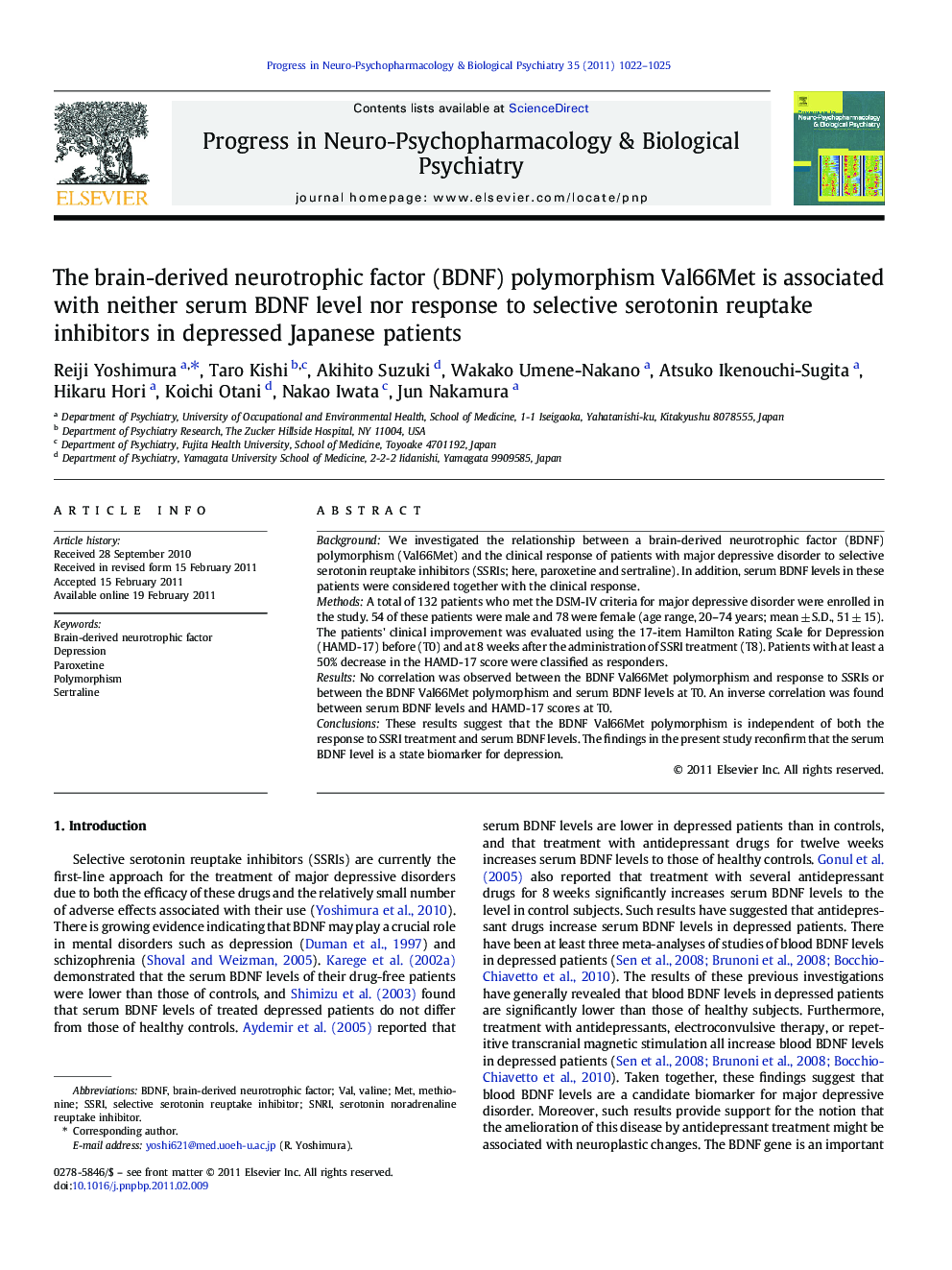| Article ID | Journal | Published Year | Pages | File Type |
|---|---|---|---|---|
| 2565241 | Progress in Neuro-Psychopharmacology and Biological Psychiatry | 2011 | 4 Pages |
BackgroundWe investigated the relationship between a brain-derived neurotrophic factor (BDNF) polymorphism (Val66Met) and the clinical response of patients with major depressive disorder to selective serotonin reuptake inhibitors (SSRIs; here, paroxetine and sertraline). In addition, serum BDNF levels in these patients were considered together with the clinical response.MethodsA total of 132 patients who met the DSM-IV criteria for major depressive disorder were enrolled in the study. 54 of these patients were male and 78 were female (age range, 20–74 years; mean ± S.D., 51 ± 15). The patients' clinical improvement was evaluated using the 17-item Hamilton Rating Scale for Depression (HAMD-17) before (T0) and at 8 weeks after the administration of SSRI treatment (T8). Patients with at least a 50% decrease in the HAMD-17 score were classified as responders.ResultsNo correlation was observed between the BDNF Val66Met polymorphism and response to SSRIs or between the BDNF Val66Met polymorphism and serum BDNF levels at T0. An inverse correlation was found between serum BDNF levels and HAMD-17 scores at T0.ConclusionsThese results suggest that the BDNF Val66Met polymorphism is independent of both the response to SSRI treatment and serum BDNF levels. The findings in the present study reconfirm that the serum BDNF level is a state biomarker for depression.
Research Highlights► No correlation was found between the BDNF Val/Met genotype and response to SSRIs (paroxetine or sertraline) in a Japanese depressive population. ► No correlation was also found between baseline serum BDNF levels and the response to the SSRIs.
